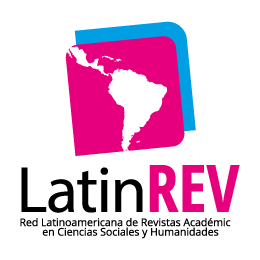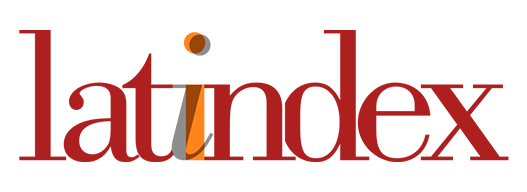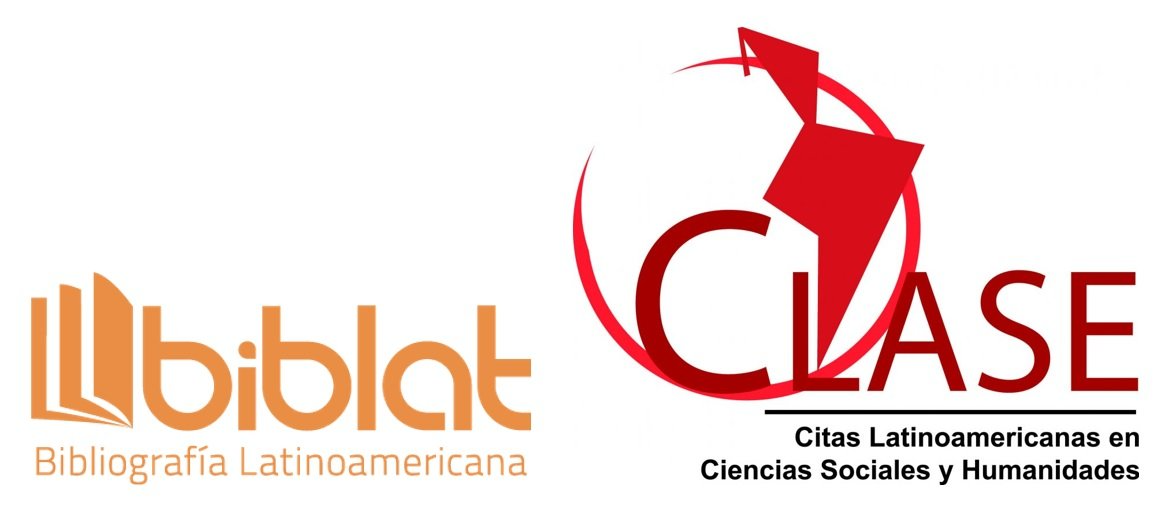Announcements
Recibimos trabajos de manera permanente para ser incluidos en nuestros próximos números.
-
2025-10-01Vínculos. Sociology, Analysis, and Opinion invites submissions for its Research and Debate section, focusing on the transformations that the production and circulation of academic knowledge have undergone under the logic of contemporary capitalism. Read more about Call for Papers for the Research and Debates Section of Issue 13 (28) of Vínculos Journal: Sociology, Analysis, and Opinion. Commodification of Knowledge and Critical Struggles over Knowledge
-
Call for the Research and Debates section of the 24th issue of Vínculos magazine. Sociology, analysis and opinion. Uses and abuses of the concept of Inequality in Social Sciences.
2023-07-05Revista Vínculos. Sociología, análisis y opinión abre su convocatoria para el número 24 con la temática: Usos y abusos del concepto de Desigualdad en Ciencias Sociales. Los artículos propuestos podrán abordar las siguientes cuestiones: - ¿Qué aspiraciones teóricas tiene la agenda académica contemporánea en materia de desigualdad? - ¿Estamos proponiendo explicaciones nuevas a la desigualdad o reciclando miradas dominantes? - ¿Qué consideraciones ontológicas, epistemológicas, metodológicas y éticas son necesarias y posibles en el estudio de las desigualdades? - ¿Las narrativas de desigualdad centradas en la medición de brechas han desplazado al análisis del poder y de sus relaciones? - ¿Estámos resignificando conceptos como el privilegio, el poder y la dominación o los estamos vaciando de sentido? - ¿Reproducimos desigualdades en la manera de investigarlas? - ¿Qué ha aportado la prespectiva feminista interseccional a estas críticas? Proceso de envío de artículos Los textos para las distintas secciones deberán enviarse para su dictaminación por medio de la plataforma OJS previo registro: http://bit.ly/3gRjCVj Read more about Call for the Research and Debates section of the 24th issue of Vínculos magazine. Sociology, analysis and opinion. Uses and abuses of the concept of Inequality in Social Sciences. -
Convocatoria para la sección de debates del número 23 de la Revista Vínculos. Sociología, análisis y opinión. La era de los trasportes Contribuciones críticas al estudio de la velocidad industrial
2023-02-14La revista Vínculos convoca a participar con estudios, investigaciones o ensayos académicos, en su Sección Debates e Investigación sobre La era de los trasportes Contribuciones críticas al estudio de la velocidad industrial. Read more about Convocatoria para la sección de debates del número 23 de la Revista Vínculos. Sociología, análisis y opinión. La era de los trasportes Contribuciones críticas al estudio de la velocidad industrial -
Convocatoria para la sección de debates del número 22.
2023-02-14La revista Vínculos convoca a participar con estudios, investigaciones o ensayos académicos, en su Sección Debates e Investigación sobre sobre La basura. Categoría ambiental, indicador de desarrollo y vertederos contra los pueblos. Los artículos propuestos podrán abordar los siguientes ejes de trabajo: -La basura como hecho social total. Interrogantes para la teoría social - William L. Rathje y la ciencia social de la basura -Economía política de la basura -La basura: agente industrial en la era del desperdicio -Higienismo y cleaner production: Ideologías ingenieriles de la limpieza - Verter basura en los pueblos para desodorizar la ciudad -Basura, capitalismo y colonialismo interno -Cadenas de comida rápida: sensación de higiene y producción de basura -Las guerras de la basura -La basura: indicador de desarrollo y crecimiento económico -Crítica a la cultura pop de las tres R Read more about Convocatoria para la sección de debates del número 22. -
Call for papers for number 21 of Vínculos. Sociology, analysis and opinion
2022-02-28La revista Vínculos convoca a participar con estudios, investigaciones o ensayos académicos, en su Sección Debates e Investigación sobre El agua. Conocimientos, saberes y escenarios críticos. Los artículos presentados podrán estar relacionados con alguno de los siguientes temas: Hacia una concepción del agua en las ciencias sociales, filosofía social del agua: crítica al concepto ingenieril del H2O, la historia del agua como historia de lugares, la botellodependencia como signo de los tiempos, la libertad humana y no humana de saciar la sed, imaginar el agua: culturas y tradiciones sin H2O, la idea del agua en los pueblos que defienden bosques, cerros, ríos, lagos y nubes y contra el mito de la escasez: Economía moral del agua. Read more about Call for papers for number 21 of Vínculos. Sociology, analysis and opinion -
Convocatoria para la sección de debates del número 20 de la Revista Vínculos. Sociología, análisis y opinión
2021-10-01La revista Vínculos convoca a participar con estudios, investigaciones o ensayos académicos, en su Sección Debates e Investigación sobre La Guerra: nuevas investigaciones, experiencias y comunidades políticas de resguardo. Read more about Convocatoria para la sección de debates del número 20 de la Revista Vínculos. Sociología, análisis y opinión -
Convocatoria número 19. Dossier temático: Patologías sociales de la pandemia
2021-04-24La revista Vínculos convoca a participar con estudios, investigaciones o ensayos académicos, en su Dossier temático sobre las crisis, efectos y costos sociales que ha dejado la pandemia. Los artículos propuestos podrán abordar los siguientes ejes de trabajo. Read more about Convocatoria número 19. Dossier temático: Patologías sociales de la pandemia




